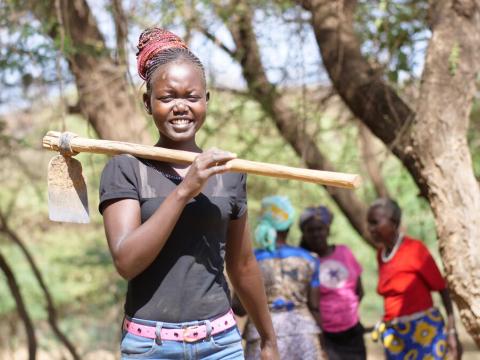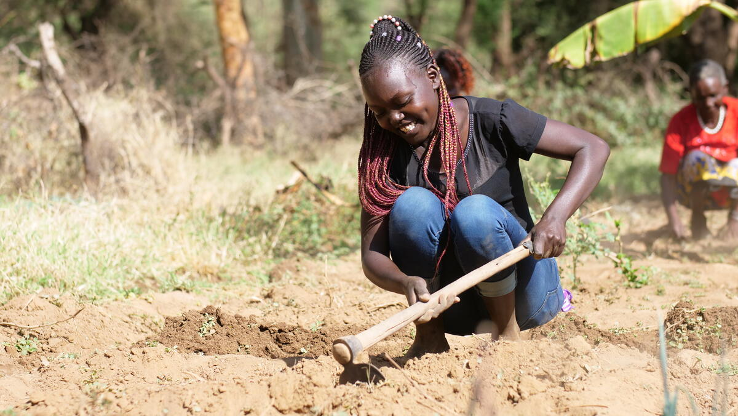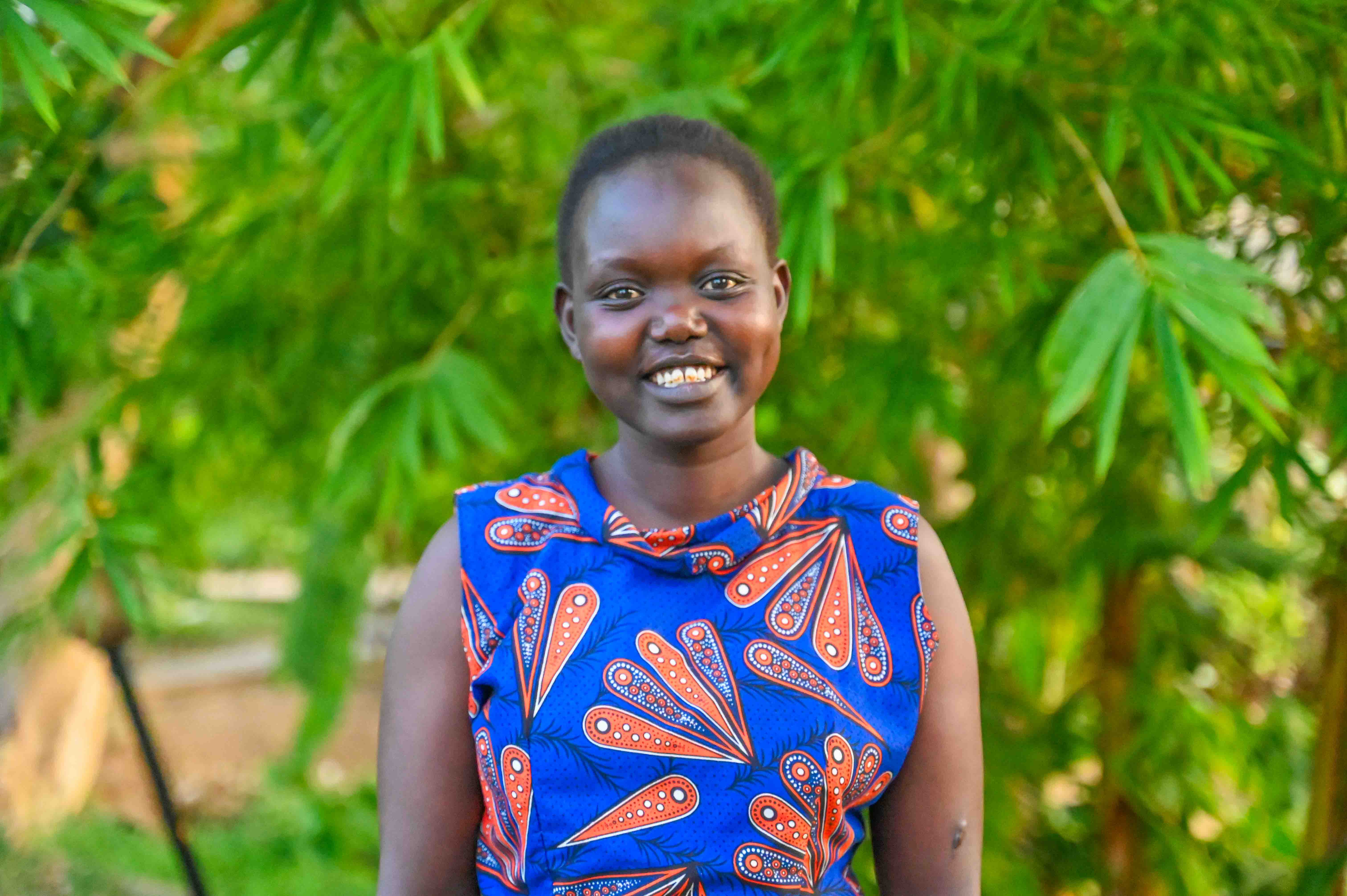Ruth’s Lifelong Mission to Fight Climate Change through a Simple Tree Regeneration Technique

The Farmer Managed Natural Regeneration (FMNR) approach is a simple, low-cost, sustainable method of restoring degraded landscapes by pruning and managing existing indigenous tree stumps. The FMNR approach has proved to offer social, economic and environmental solutions for vulnerable communities impacted by climate change.
Ruth Jerotich, an FMNR youth champion in her early twenties, is famous for her activism on climate change. Together with her seven siblings, they live in Baringo County in Kenya, where the livelihoods of most communities are affected due to unusually persistent drought.
“Because of climate change we have lost animals, crops, rivers dry up, people move from place to place looking for pasture and even some die because of famine,” Ruth says.
Since being trained about the FMNR approach by World Vision in 2018, Ruth has made it a lifelong mission to fight climate change and reverse land degradation in her community through FMNR. She has witnessed her efforts of training school children, youth and adults bear fruit. Ruth was selected to be a lead farmer during a baraza where they were sensitized on FMNR.
That is when she developed the passion to advocate for restoration. She saw FMNR as an opportunity to deal with the environmental challenges her community was facing. As a lead farmer in World Vision’s Central Rift Farmer Managed Natural Regeneration Scale-Up Project (CRIFSUP) that is funded by the Australian Government, Ruth was expected to train ten other farmers on FMNR. Commendably, she trained fifteen farmers who practice the FMNR technique in their farmlands to date. Ruth continues to work with the youth in her community to create awareness on FMNR and environmental conservation.

The introduction of FMNR in her community, has led to increased tree cover, reduced deforestation thereby reduced soil erosion and recharged water sources. She has also witnessed mindset change among community members who used to cut down trees, now on the forefront regenerating indigenous trees using the FMNR approach.
“I have practiced FMNR and taught my community about it for over five years now. Farmers and pastoralists have adopted the technique since it is easy and cheap. We have more fodder and pasture for livestock. We have more trees thus women and girls take less than five minutes to access firewood,” Ruth says.
Women and girls could previously walk for over three hours to fetch f irewood that at times ended up not being used due to lack of food.
“Thanks to World Vision, we learnt how to plant drought resistant crops and fruit trees such as oranges and mangoes. Now there is enough food for children,” Ruth states.
Ruth believes that increased tree cover will help the world tackle the adverse effects of climate change and that FMNR is among the solutions to make this possible. She is optimistic that children in her community will be able to enjoy all the benefits that a healthy environment has to offer.
Ruth maintains an FMNR demo site where people can learn and have a practical experience of implementing the approach. Ruth is not only reaching her local community with the knowledge on FMNR. She has extensively used her voice to reach a wider audience on social media, podcasts and even had an opportunity to represent young youth activists in Kenya during the Conference of Parties (COP26) forum in 2021 as well as the UN Food Systems Summit in 2023.

“Youth can play an important role in fighting climate change by raising awareness and changing attitudes. We can be role models and champion grassroot movements like FMNR to train people on how to protect the environment,” she says.
FMNR offers a sustainable solution for vulnerable communities in need of food, fuelwood and water. Children have more time to study and play as they don’t have to walk for long distances to collect water or firewood. Communities practicing FMNR are now climate resilient and are able to access food for their families and livestock even in the extreme dry conditions faced in Baringo County.
“Before, a lot of children were malnourished because there was not enough food,” Ruth recalls.
Ruth believes that increased tree cover will help the world tackle the adverse effects of climate change and that FMNR is among the solutions to make this possible. She is optimistic that children in her community will be able to enjoy all the benefits that a healthy environment has to offer.
By Hellen Owuor, Communications Specialist (CRIFSUP), World Vision Kenya